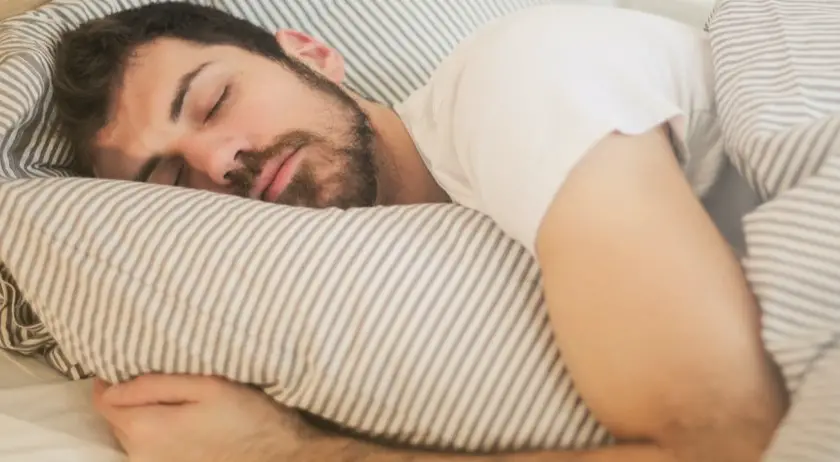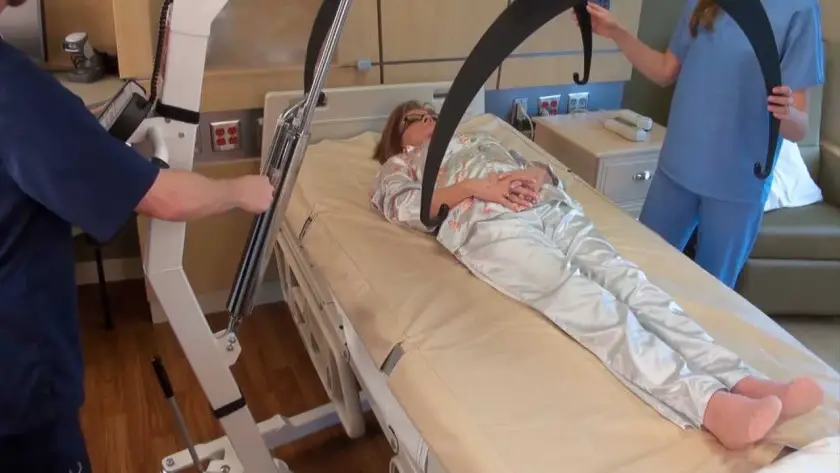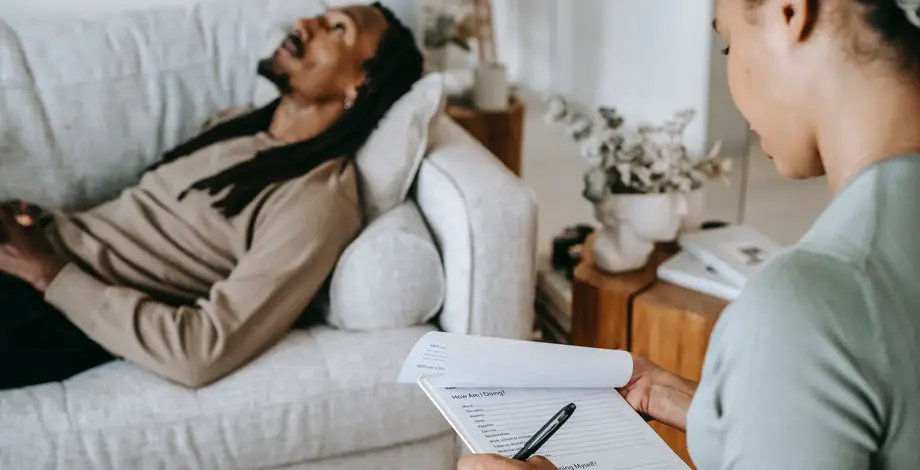Many things can wake you up from your normal sleep.
The sound of falling plates in the kitchen, the wind suddenly banging your door, and insects chirping in a nearby bush are just a few examples.
Whatever it is, sounds seem to be the most prevalent thing that rouses us up from our slumber state, regardless of how deep it is.
But how do deaf people wake up from sleep?
They can’t hear a thing even if the earth is cracking open.
So, how do they wake up when they fall asleep?
An even trickier question is, how exactly are they able to meet up with early morning appointments and meetings without oversleeping?
The answer is in the way our biology functions.
Table of Contents
- How We All Wake Up from Sleep
- How Deaf People Prevent Oversleeping
- How Do Deaf People Wake Up in the Morning?
How We All Wake Up from Sleep
Turns out there is something called the ‘biological clock’ that controls our sleep and wake-up schedule.
The biological clock is not a clock in the real sense.
Rather, it’s a concept that describes several processes that control when our body senses it needs to sleep and when it needs to wake up.
This internal clock is regulated by the suprachiasmatic nucleus or simply SCN. The SCN is a tiny part of the hypothalamus that controls the rhythmic activities of the human body.
It is sensitive to light and darkness. When it senses light (as in ‘daytime’) as a result of the sensation from the optic nerves in the eyes, it triggers the release of hormones to help you wake up.
But in darkness, it sends another trigger to the pineal, which secretes another hormone. This hormone is called melatonin; it makes you feel drowsy or sleepy.
As such, our body’s sleep and wake-up processes are not entirely in the hands of sound or other external disturbances. This is why we can sleep at night and wake up in the morning without anyone coming to wake us up and without the help of an alarm going off.
Related: Can You Go Deaf from a Gunshot? (Answered)
How Deaf People Prevent Oversleeping
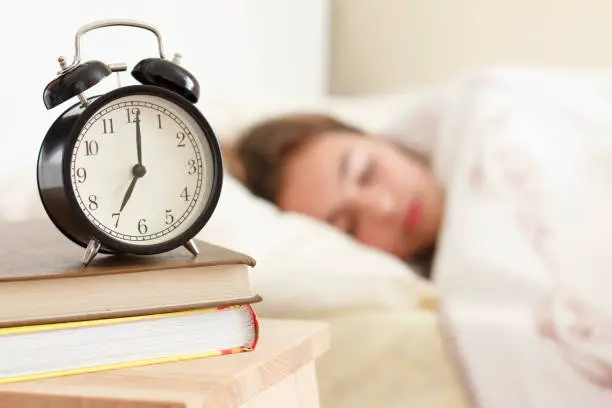
Waking up on time is a problem for most people. And this is even true for folks who are very sensitive about time.
We cannot control our internal biological clock. The body sleeps at will and wakes up at will. We have very little control over this setup.
Thankfully, there are alarm clocks on the market that can produce annoyingly loud sounds at scheduled periods to help us keep to schedules without worrying about sleeping past the time.
This helps us wake up early in the morning or when we need to wake up without depending on the SCN to sense the morning sunlight before signaling the brain to start the wake-up process.
Alarm clocks are incredibly helpful.
You set them before you go to bed at night and in the morning they produce loud enough sounds that can wake you up. Great stuff for keeping to meeting schedules!
But how do deaf people prevent themselves from oversleeping and missing out on important early morning meetings or interviews or even the early morning school bus?
Turns out there are also alarm clocks specially made for them.
No, those alarm clocks don’t produce sounds like the regular alarm clocks. Sure some may produce sounds but it’s not the sound from the alarm clocks that wake them up.
Related: Sign Language Puns: Everything You Should Know
How Do Deaf People Wake Up in the Morning?
Since deaf people can’t hear sounds, sound alarms can’t provide the stimuli necessary to wake them from their sleep in the morning. As such, their alarms have to rely on other external factors to produce the necessary stimuli to wake them up from sleep.
There are different categories of alarm clocks for deaf people.
Some produce just one stimulus while others combine several different stimuli for more effectiveness.
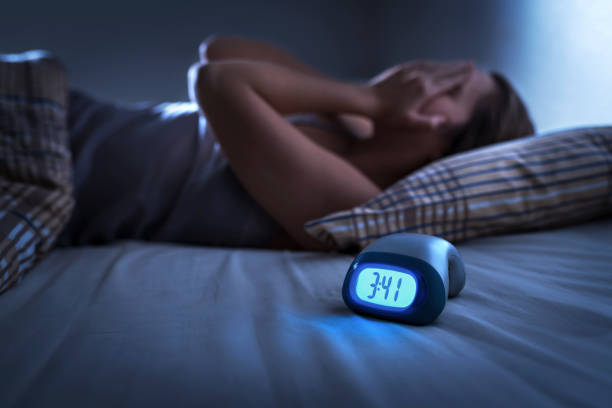
Vibrating Alarm
Instead of relying on annoyingly loud sounds to wake them up in the morning like most people, deaf people tend to rely on the vibratory feature of alarm clocks.
Since they cannot hear anything, the incredibly loud sounds produced by alarm clocks cannot wake them up.
Vibration is the most common option for most deaf people when it comes to the choice of alarm clocks.
Some use the vibrating feature of their smartphones or outrightly go for alarm clocks with very strong vibrations.
To make the clocks even more effective, some heavy sleepers might place the alarm clock or their smartphone set to vibratory mode under their pillow before they fall asleep.
Related: 7 Ways Deaf Parents Hear Their Baby Cry
Flash Light
Another great but less common alternative for sound alarm clocks for deaf people is alarm clocks with flashing lights.
Sudden bright light in a dark room tends to produce a strong enough stimulus for the body to wake up from its sleep state.
The body uses the early morning sunlight as the primary cue to start waking up from sleep.
Some alarm clocks designed for deaf people come with flashlights. The light is attached to the clock in such a way that when the scheduled time is reached, the light gets triggered.
Some light clocks blink while others just shine continuously till you wake up and turn them off yourself.
To make the clocks more effective, you need to place the clock in such a way that the light will be pointing directly at your face. Or you may want to go for a clock that comes with both flashlights and a vibratory feature.
Getting Someone to Wake Them Up
Another way deaf people can wake up on time is by going about it the old fashion way. Recruiting the help of a loved one to help wake them up at a certain time in the morning or during the day.
We all do this from time to time regardless of modern alarm clocks or alarm features on our smartphones.
Deaf people can also recruit the help of a loved one in the same house to come to tap them when it is time.
Other Less Popular Methods
Many things can wake people up from sleep aside from sounds. Deaf people can easily utilize these to help them wake up from sleep when they want to.
For instance, there are currently smartwatches and wristbands on the market that will tighten around the wrist when given a set of rules to do so. Deaf people can easily set these wristbands for watches to constrict their wrist once it is a certain time.
This can produce the necessary stimulation to wake them up from sleep.
Recently, a Japanese company developed a new product that sprays a harmless stinging chemical. The chemical produces a stinging sensation when it comes in contact with the skin.
In a test on sleeping people, the device was found to be very effective in waking people off regardless of their hearing status.
